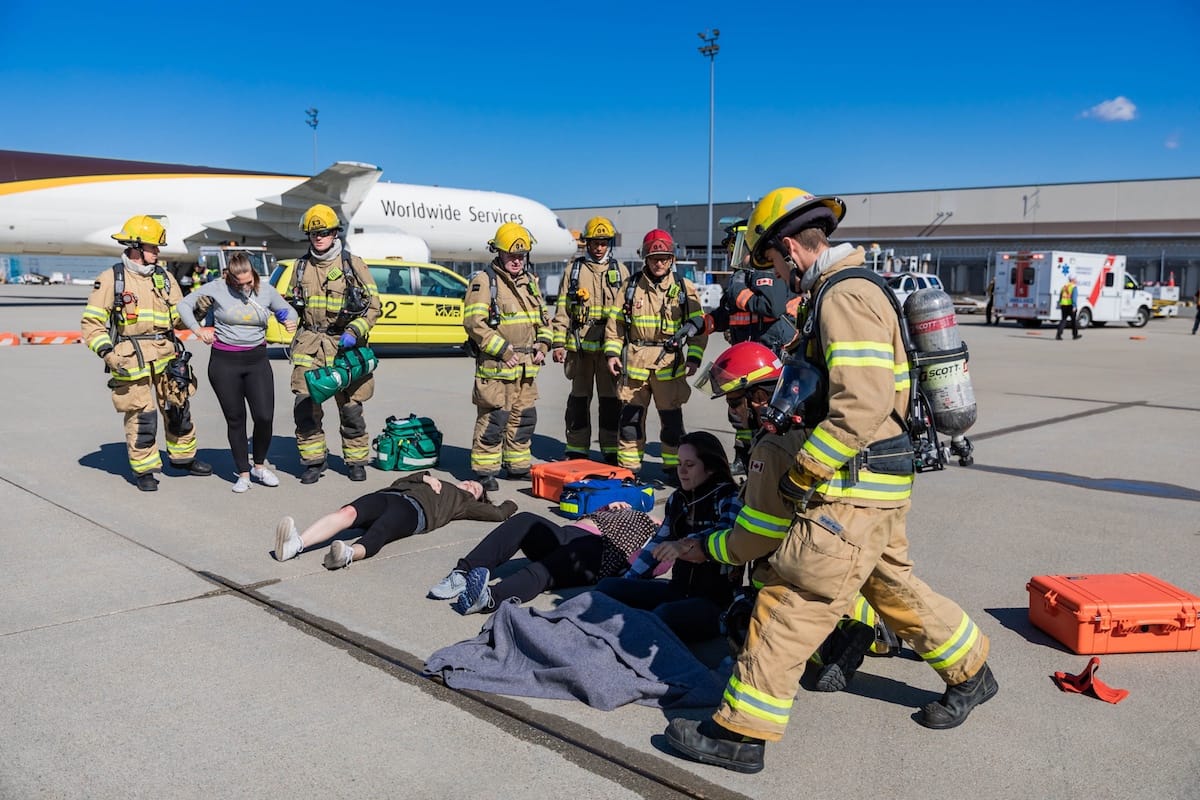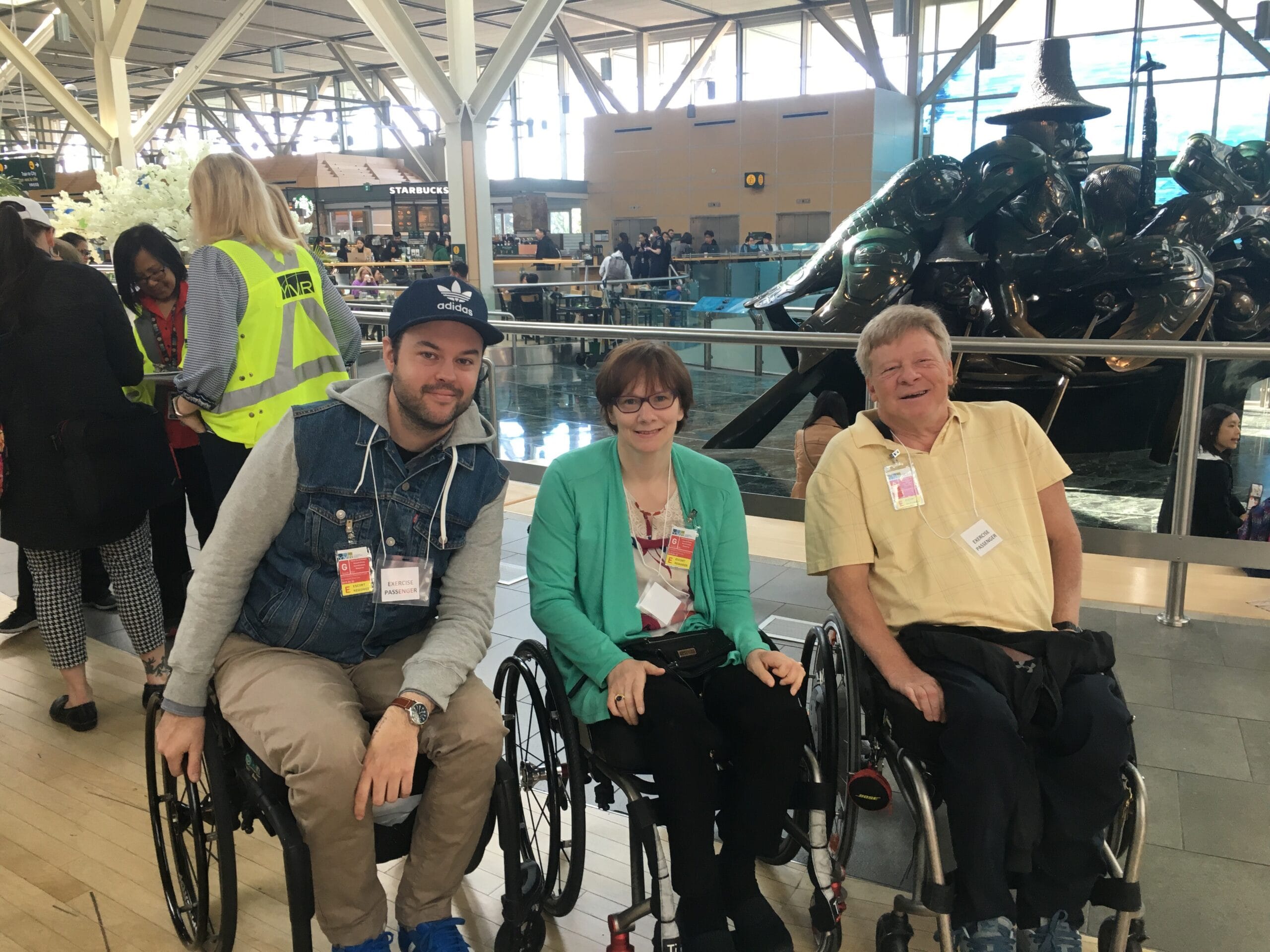We share a lot about how to make the most of your air travel experiences, but SCI BC’s partners in accessible travel at YVR went even further to try and make sure that even if the worst were to happen, the needs of people with disabilities would be represented.

In April, YVR hosted a simulation exercise that replicated an airplane crash to practice emergency procedures. As one of our partners, YVR invited SCI BC staff and volunteers to participate in the simulation to help ensure first responders and staff understood the disability perspective.
Almost 500 participants took part in the full-day exercise that included a mock crash, patient personas and dozens of first responders. SCI BC’s Peer Program Coordinator, Ryan Clarkson, and long-time Peer and SFALG co-leader, Kim Egger, were there to experience YVR’s Emergency Management Plan firsthand and provide feedback.
We asked Ryan a few questions about the day to learn more:
My day at YVR was pretty awesome. I was asked to participate to see how various departments handle an emergency, and then give some feedback on how they did. I was given a fake identity and back story, and pretty much told to play the role as I see fit. My “priority” was for the return of my actual wheelchair and to know the fate of my fellow passengers.
The main storyline was that our plane crashed on arrival and we were to be shuttled to the airport. Not everyone knew the circumstances of the crash, which made things a little more interesting in terms of what everyone’s priority and questions were. We couldn’t simulate an actual crash, so we started in the shuttle bus that would take us from the crash site to the building. We were then processed by custom officers and taken to a separate room where the airline staff would answer questions and take care of us. There were many groups of people participating in various roles—they even had “victims” with fake wounds on their head!

Involving people with physical disabilities (such as spinal cord injuries, visual impairments, hearing impairments, etc.) added an extra level to the exercise for everyone involved. If everyone was able-bodied then the responses from customs, airline staff and RCMP would pretty much be the same for everyone. When you add in members from every group it keeps people on their toes. Which is important for critical thinking in an emergency situation that requires everyone to think outside the box in terms of how to meet individual needs.
Excellent. The participants were pretty relentless at times. YVR staff and first responders were understanding of my concerns and needs, which felt reassuring even though it was an exercise! If they didn’t have the answers right at that moment they would still take the time to explain why they couldn’t answer my questions. This was reassuring compared to being pushed aside and told “we will get back to you”. I certainly gained a little more respect for those who are involved with the day-to-day at YVR. There is no role that is not important when a crisis is going on. Everything can go from calm to crazy in the blink of an eye and it was interesting to see how many people are involved in making sure that everything goes as smoothly as possible.
What’s one thing Peers should know about airplane emergencies and preparedness before they travel? Anything can happen—and if an emergency actually does happen you should be understanding and patient with everyone involved as they are doing the best they can with the answers they have at that time.
We’re proud to partner with YVR to make travel accessible for all. Check out our Accessible Travel Guide and travel videos for all the information on pre-trip planning, checking in, departures and beyond!
Save



